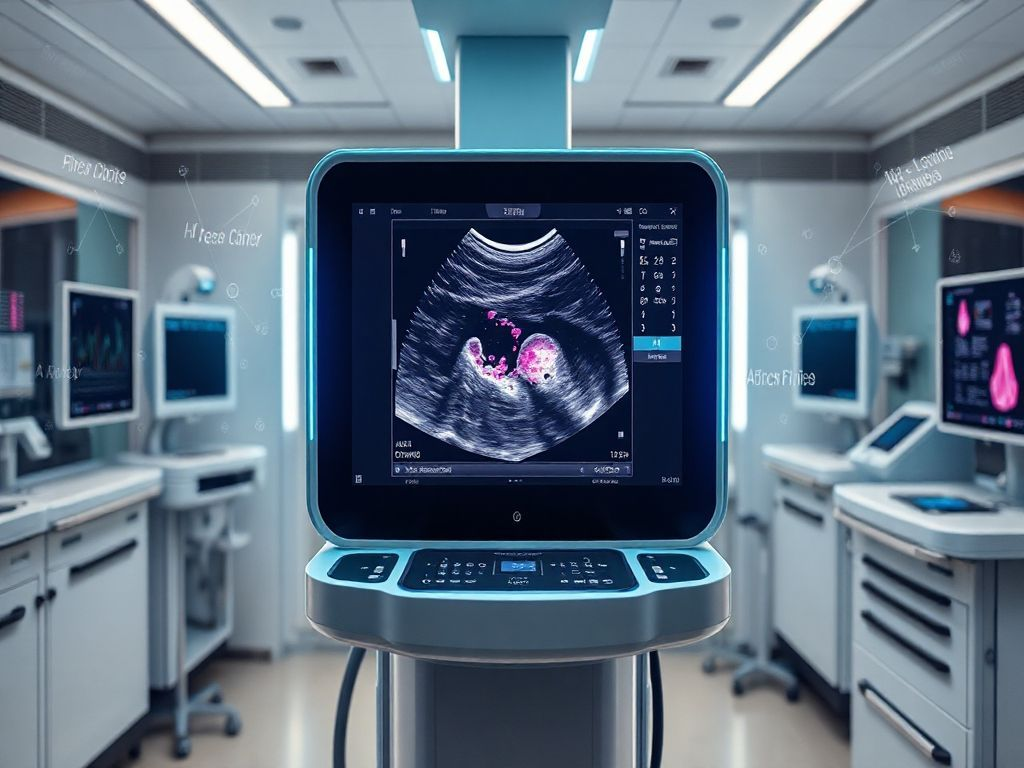
Stockholm, Sweden – In a groundbreaking study, researchers from the Karolinska Institute, led by Professor Elisabeth Epstein, have developed an AI-driven ultrasound image analysis model that demonstrates exceptional performance in detecting ovarian cancer. Published in Nature Medicine, the study showcases the model’s ability to surpass human experts in diagnostic accuracy and highlights its significant potential to revolutionize the early detection of this deadly disease.
Ovarian cancer is one of the most lethal cancers in women, with early diagnosis playing a crucial role in improving survival rates. However, the shortage of skilled ultrasound practitioners has made it challenging to consistently detect the disease in its early stages. In response, Epstein’s team leveraged cutting-edge artificial intelligence to create a model that not only detects ovarian cancer with remarkable precision but also shows potential for widespread clinical use.
AI Model Shows Superior Diagnostic Accuracy
In a comprehensive, international multicenter study, the team trained their AI model on a massive dataset of 17,119 ultrasound images from 3,652 patients across 20 centers in eight countries. The model was tested using a Leave-One-Center-Out Cross-Validation (LOCO-CV) method, ensuring its ability to generalize across diverse clinical settings.
The results were striking. The AI model outperformed both expert and non-expert practitioners in every evaluation metric, including F1-score, sensitivity, specificity, and accuracy. For example, the model achieved an F1-score of 83.50%, significantly higher than the 79.50% and 74.10% scores of the expert and non-expert groups, respectively. These findings highlight the AI model's ability to not only match but exceed the diagnostic capabilities of human specialists.
Improving Clinical Workflows and Reducing Referral Rates
Beyond its diagnostic accuracy, the AI model also demonstrated impressive potential to improve clinical workflows. In a simulated retrospective triage scenario, the model reduced the need for expert referrals by 63%, illustrating how it could alleviate the burden on ultrasound specialists and increase the overall efficiency of ovarian cancer diagnosis.
"AI’s ability to handle large volumes of ultrasound images and provide reliable, quick assessments could play a key role in reducing delays in diagnosis, particularly in areas with limited access to expert care," said Professor Epstein.
Robust Across Different Patient Groups
One of the standout features of the AI model is its strong generalizability. The study showed that the model maintained high performance across various patient groups, including different age demographics, ultrasound systems, and histopathological diagnoses. This robustness makes the model highly adaptable and suitable for deployment in a wide range of clinical environments.
A Step Toward Revolutionizing Ovarian Cancer Diagnosis
This research marks a significant leap forward in the application of artificial intelligence in gynecological oncology. The team’s findings suggest that AI could help bridge the gap caused by the shortage of trained specialists and offer a valuable tool for improving ovarian cancer outcomes worldwide.
While the results are promising, Professor Epstein emphasized that further research is needed. "Despite the encouraging outcomes, we must conduct prospective and randomized studies to confirm the AI model’s clinical effectiveness in real-world settings," she explained. "Future studies should also explore how the model performs in populations with lower ovarian cancer incidence to ensure it works across diverse clinical environments."
The Future of AI in Healthcare
The study serves as a promising example of how AI can enhance diagnostic accuracy, efficiency, and accessibility in healthcare. With ovarian cancer detection being a critical area of need, Epstein and her team’s work provides a powerful case for AI’s role in improving patient outcomes and addressing healthcare disparities globally.
Original link https://www.nature.com/articles/s41591-024-03329-4
